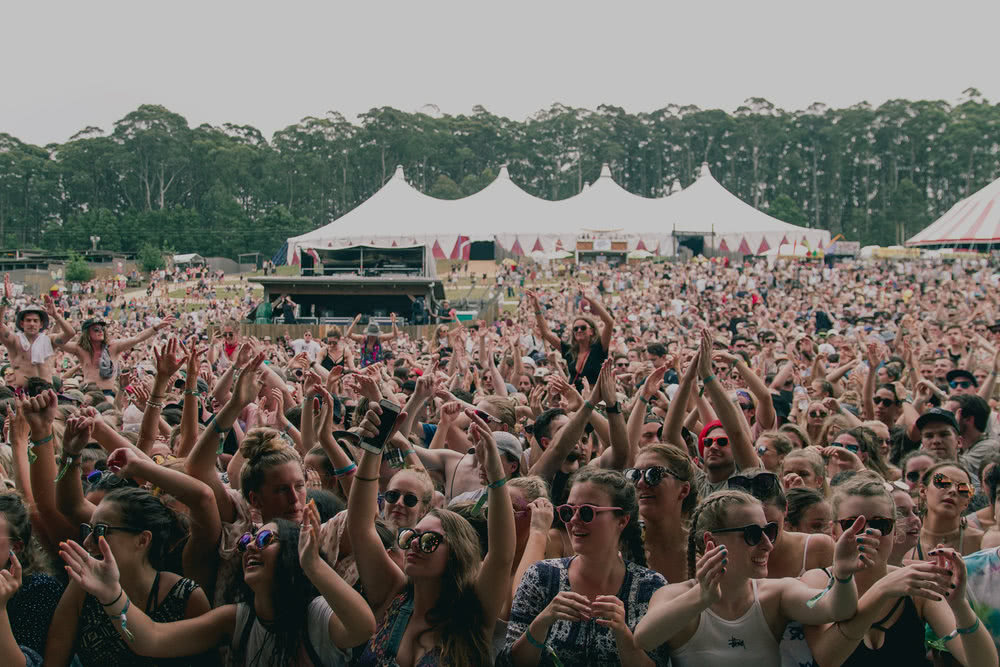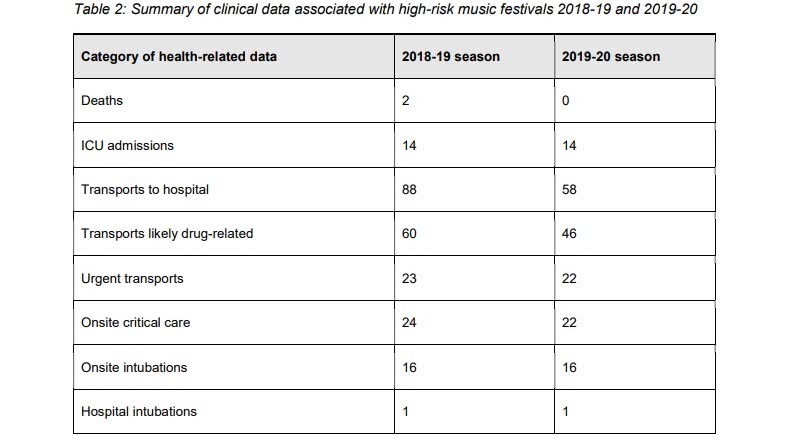New Australian festivals regulations have no impact on drug overdoses: Report

A review into the regulations governing festivals across New South Wales has found no real change in the number of serious drug-related presentations among punters since the rules came into effect.
The findings and other details relating to the controversial licensing regime are explored in a review paper on the Music Festivals Act 2019, published by the NSW Government.
Based on information gathered by the state’s Ministry of Health from nine so-called “high-risk” festivals which took place between 21st November 2019 and and 30th April 2020, and a corresponding period in the 2018-19 festivals season, the number of deaths dropped from two to zero, and “notable reductions” were spotted in the number of hospital trips.
The study also noted “some evidence” to suggest the toughened licensing restrictions had reduced the number of adverse health outcomes, and to a lesser extent assaults.
However, all other incident types showed “little change” over time and the number of “serious drug-related presentations” was consistent.

High-risk music festivals data (assaults) 2018-19/2019-20
It’s a dry read, and if you’re looking for wins or losses for the festivals space, there aren’t any.
Also, the data set is damaged due to the pandemic, which wiped out the best part of two months of the latest reporting period. But it’s a start.
The controversial music festival liquor license rolled out from March 1st, 2019, following a spate of drug related deaths at outdoors festivals.
Live Performance Australia and other industry advocates and trade bodies blasted the new rules as a rushed, “knee jerk response” and even a death sentence for the festivals landscape.

High-risk music festivals data (assaults) 2018-19/2019-20
The tough new rules were blamed for the collapse of the Psyfari and Mountain Sounds festivals, and the industry banded together for a campaign and a public march on central Sydney.
The novel Coronavirus, however, has pushed all this into the background.
If the “Review of the operation of the Music Festivals Act 2019” does offer an overarching theme, it’s the sense that this licensing act isn’t going away.
The Berejiklian government will capture more data, over as many years as it takes.
On the flip side, the industry is engaged in the process, to some extent.
A music festival roundtable featured reps from APRA AMCOS, Australian Festival Association, ARIA, Live Performance Australia, Music NSW, the report points out.

In other takeaways, the review recommends that the state Government consider opportunities for reducing duplication to “ease the overall burden” on music festival organisers.
There’s also consideration for replacing the terminology of “high-risk” under the Act with a more “appropriate term,” due to its negative connotations and potential damage to brands.
An initial list of 14 festivals tarred with the “high-risk” brush included the national Laneway Festival, Lost Paradise and Days Like.
And the suggested replacement term? “Notifiable.”
The review also recommends cutting some red tape, including a reduction in the submission deadline from 90 to 60 days prior to the scheduled event
The authors of the report aren’t buying the idea that festivals pegged as “high-risk” have had their bottom line “significantly impacted” from ticket and bar sales.
Only one organiser reported an impact on ticket sales, which they attributed to the bum rap of being labeled as “high-risk.”
Read the report here.
This article originally appeared on The Industry Observer, which is now part of The Music Network.


































